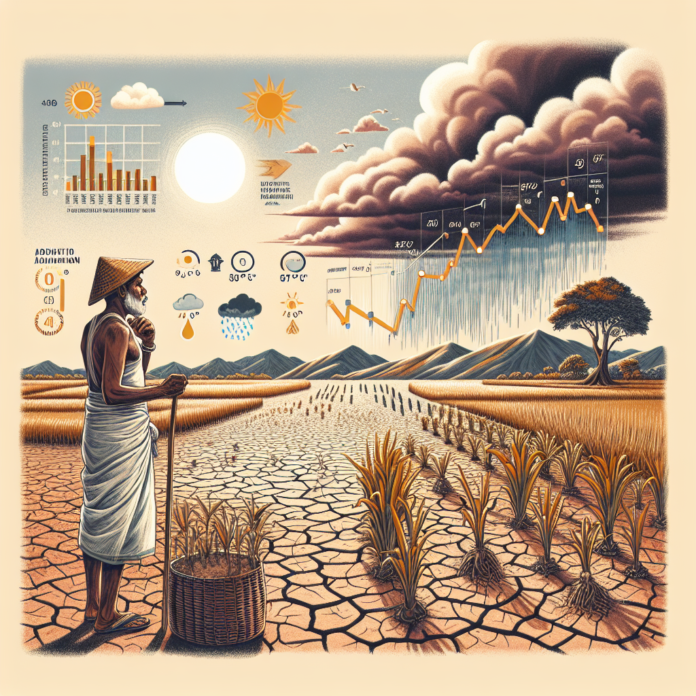Adapting Indian Agriculture to Climate Change
Adapting Indian Agriculture to Climate Change
The agricultural landscape in India is facing unprecedented challenges due to climate change. As temperatures rise and weather patterns become increasingly erratic, it is crucial for the sector to evolve and implement sustainable practices that can withstand these shifts.
Impacts of Climate Change on Agriculture
Indian agriculture is heavily reliant on the monsoon, which has become less predictable in recent years. This unpredictability leads to both droughts and floods, significantly affecting crop yields. Additionally, changing climatic conditions have resulted in the emergence of new pests and diseases, further threatening food security. Studies indicate that wheat and rice production could decline by 10–30% by the end of the century if adaptive measures are not taken.
Need for Sustainable Practices
To combat these challenges, farmers must adopt sustainable agricultural practices. Techniques such as crop rotation, agroforestry, and organic farming can improve soil health and increase resilience to climatic variability. Furthermore, the adoption of drought-resistant crop varieties will be essential in ensuring stable yields under changing weather conditions.
Technological Integration
The integration of technology in agriculture can also play a pivotal role. Precision agriculture, which uses data analytics and satellite imagery, allows farmers to make informed decisions regarding planting times, irrigation needs, and pest control. Additionally, mobile applications can provide real-time weather updates and market information, enabling farmers to plan better and reduce losses.
Government Initiatives and Support
The Indian government has recognized the urgency of addressing climate change in agriculture and has initiated several programs aimed at enhancing resilience. Schemes like the Pradhan Mantri Fasal Bima Yojana provide insurance coverage to farmers against crop losses, while the Soil Health Card scheme promotes the use of organic fertilizers and sustainable practices.
Community Engagement and Education
Community involvement and education are crucial for the success of these initiatives. Farmers must be educated about the impacts of climate change and the benefits of adopting sustainable practices. Workshops, training programs, and collaboration with agricultural universities can empower farmers to implement innovative solutions effectively.
Conclusion
In summary, Indian agriculture stands at a critical juncture where adaptation to climate change is not just beneficial but necessary for survival. Through the adoption of sustainable practices, technological advancements, and supportive government policies, the agricultural sector can enhance its resilience and continue to provide for the nation in the face of climate challenges.


